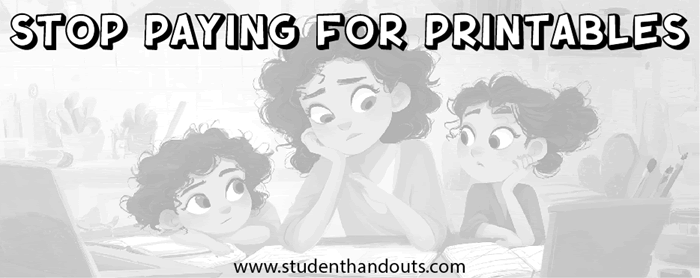 |
|---|
| www.studenthandouts.com ↣ eBooks and Texts ↣ Fables |
 | ||||||||||
| The Little Red Hen eBook with Worksheets |
|
Learning classic fables is a critical part of elementary school Language Arts education for several reasons. Moral Education: Fables convey important moral lessons and ethical values in a simple, memorable format. They teach children about honesty, kindness, perseverance, and other virtues essential for personal development and social interaction. Language and Literacy Skills: Fables introduce children to narrative structure, including elements like plot, character, and setting. This foundation is crucial for understanding more complex literary works in the future. Critical Thinking and Comprehension: Analyzing the actions and motivations of characters in fables helps develop critical thinking skills. Students learn to identify themes, infer meanings, and draw conclusions, enhancing their overall reading comprehension. Cultural Literacy: Fables often come from various cultures and historical contexts, providing insights into different societies and traditions. This exposure fosters cultural awareness and appreciation for diversity. Engagement and Enjoyment: The brevity and simplicity of fables, coupled with their engaging and often humorous nature, make them accessible and enjoyable for young readers. This positive reading experience encourages a lifelong interest in literature. Communication Skills: Discussing and retelling fables helps students develop verbal communication skills. They learn to articulate thoughts, explain ideas, and present narratives clearly and confidently. Incorporating classic fables into the curriculum enriches elementary education by blending moral education with essential language arts skills, fostering well-rounded and thoughtful young learners. |
 |
| www.studenthandouts.com ↣ eBooks and Texts ↣ Fables |








